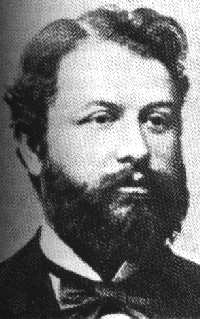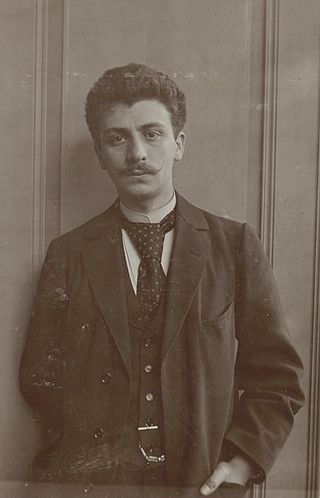
Otto Friedrich von Gierke,born Otto Friedrich Gierke was a German legal scholar and historian. He is considered today as one of the most influential and important legal scholars of the 19th and 20th century. In his four-volume magnum opus entitled Das deutsche Genossenschaftsrecht,he pioneered the study of social groups and the importance of associations in German life,which stood between the divide of private and public law.

Georg Jellinek was a German public lawyer and was considered to be "the exponent of public law in Austria“.

Arthur Nussbaum was a German-born American jurist.
Johannes Feest is a German penologist and sociologist of law. He studied law in Vienna (Austria) and Munich (Germany) and sociology at the University of California,Berkeley. From 1974 until his retirement in 2005 he was professor of criminal law at the University of Bremen (Germany). From 1995 to 1997 he directed the International Institute for the Sociology of Law in Oñati. He has done research on the courts,police and prisons. Presently,he is primarily engaged with German prison policy. In 2019,he initiated a manifesto to abolish penitentiaries and other prisons. He is the brother of Christian Feest and Gerhard Gleich.

The Hertie School is a German private,independent graduate school for governance located in Berlin. Hertie School is accredited to confer master's and doctoral degrees. Half of the school's students are international,with more than 95 countries represented among alumni and currently enrolled students. The working language is English.
Karl Albrecht Schachtschneider (born 11 July 1940,in Hütten bei Gellin,Province of Pomerania,Germany is a Professor Emeritus in Public Law at University of Erlangen in Nuremberg,Germany.
Verica Trstenjak is a Slovenian Doctor of Laws and Professor of European Law based in Vienna,Austria. From 2006 to 2012 she has been an Advocate General at the Court of Justice of the European Union in Luxembourg (CJEU),from 2004 to 2006 judge of the General Court.

The International Law Institute, also known as the ILI,was founded as part of Georgetown University in 1955. The ILI provides training and technical assistance for the legal,economic and financial problems of developing countries and emerging economies. Since 1983,the ILI has been an independent,non-profit educational institution serving government officials,legal and business professionals and scholars from its headquarters in Washington,D.C. To date,the ILI and its global affiliates have trained over 39,400 officials,managers,and practitioners- from 186 countries- since it held its first seminar in 1971.
Peer Zumbansen is the inaugural professor of business law at the faculty of law of McGill University. Before joining McGill in January 2021,Zumbansen held the inaugural chair in transnational law at The Dickson Poon School of Law,King's College London. At King's,he served as the founding director of the Transnational Law Institute,and the faculty co-director of the Transnational Law Summer Institute [TLSI]. Since 2018,he is co-director of the Transnational Law Institute,together with Dr Emily Barritt and Dr Octavio Ferraz,both of the Dickson Poon School of Law.
Inge Kaul was a German development economist who was an adjunct professor at the Hertie School of Governance,Berlin,and advisor to various governmental,multilateral and non-profit organizations on policy options to meet global challenges. She specialised in Global public goods,with much of her work looking at international cooperation financing,public-private partnerships,global governance,global issue diplomacy and UN system reform. She was the first director of UNDP's Human Development Report Office,a position which she held from 1989 to 1994,where with Mahbub ul Haq she led the team working on the Human Development Report. She was then director of UNDP's Office of Development Studies from 1995 to 2005. She was the author of numerous publications on international public economics and finance and was the lead editor of the books Providing Global Public Goods:Managing Globalization and The New Public Finance:Responding to Global Challenges.

Peeter Järvelaid is an Estonian legal scholar and historian. Järvelaid is a professor in the University of Tallinn. He has developed semiotic and personality-centered research direction,writing hundreds of articles mostly about the European and Estonian legal history and education,published in Estonian,English,German,French,Russian,Latvian,Finnish,Lithuanian and Swedish. Since 2006 his studies have been increasingly concentrated on the international relations in the 20th century,which among others has required intensive archival researches in German and Polish archives. Since 2012 Järvelaid has placed his research emphasis on the German diplomatic missions,with a specific interest in German diplomatic representation in Tallinn.
Nico Krisch is a legal scholar,specializing in international law,constitutional theory,and global governance. He is professor at the Graduate Institute of International and Development Studies in Geneva. Previously,he was research professor at the ICREA,Institut Barcelona d'Estudis Internacionals,and a Fellow at the Hertie School of Governance in Berlin. He has also been a professor of international law at the Hertie School,a senior lecturer at the Law Department of the London School of Economics and Political Science,and a research fellow at Merton College (Oxford),New York University School of Law and the Max Planck Institute for International Law in Heidelberg. He has also been a visiting professor of law at Harvard Law School.

Volkmar Gessner was a German university professor and a socio-legal scholar.

Patrizia Nanz is a political scientist and an expert in public participation and democratic innovations. She has provided expertise to businesses,state agencies,and governments in various European countries.
Götz Schulze was a German jurist and judge.
Claus-Wilhelm Canaris was a German jurist. Until his retirement in 2005 he was professor of Private Law,Commercial law and Labour law the University of Munich.

Reinhard Zimmermann is a German law professor and retired Director at the Max Planck Institute for Comparative and International Private Law in Hamburg. From 2011 to 2023 he was President of the German Academic Scholarship Foundation.
Social law is an unified concept of law,which replaces the classical division of public law and private law. The term has both been used to mean fields of law that fall between "core" private and public subjects,such as corporate law,competition law,labour law and social security,or as a unified concept for the whole of the law based on associations.
Bernd-Christian Funk is an Austrian legal scholar and educator. Funk is a former professor of Constitutional and Administrative Law at the University of Vienna,the dean and academic director of the Sigmund Freud University Vienna Faculty of Law,and one of the governors of the Medical University of Innsbruck.
Eva-Maria Kieninger is a German legal scholar and professor at the University of Würzburg.









